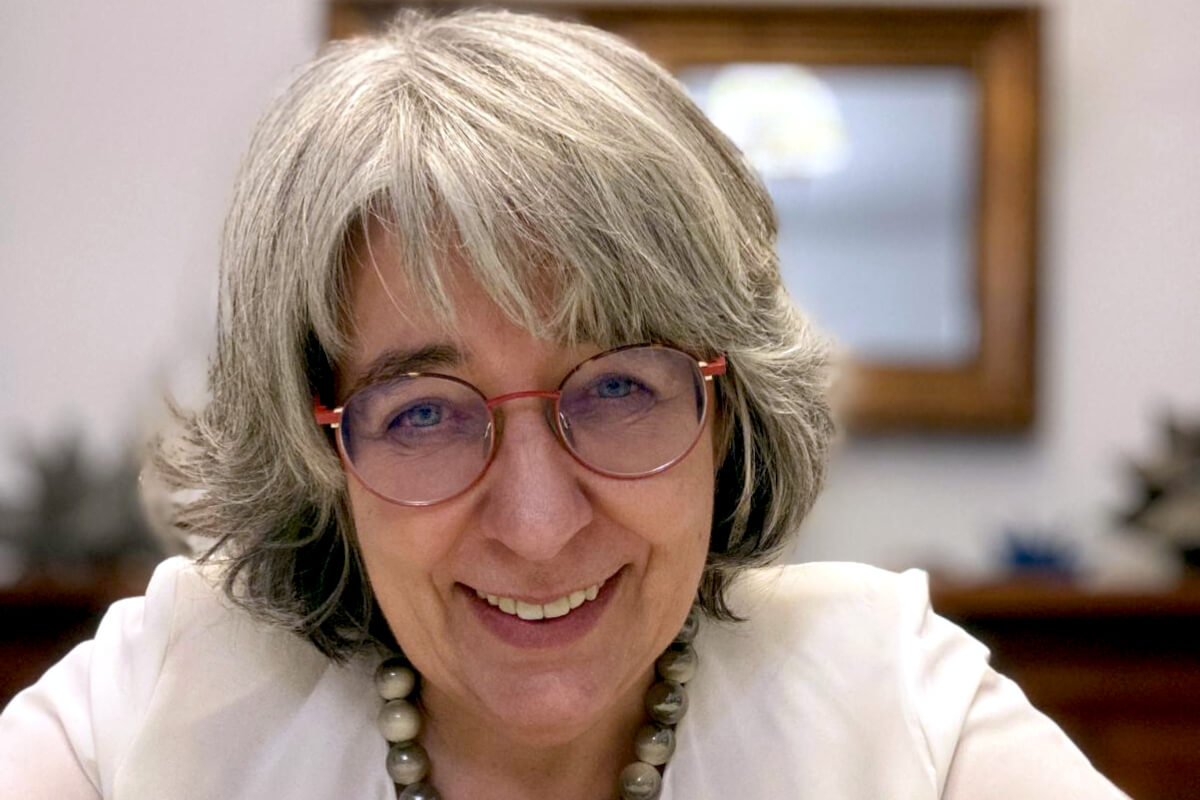Maria de Lurdes Rosa

Biography
PhD in Medieval History from the École des Hautes Études en Sciences Sociales / NOVA University Lisbon. She teaches in the History Department of NOVA FCSH. She has two academic titles of aggregate in Medieval History (NOVA, 2016) and Information Science (University of Coimbra, 2021).
Her areas of study are the cultural history and mentalities of the Middle Ages, contemporary historiography on the same period, and recreations of medieval themes. Since 2009, she has been working on a project to study and dynamise family archives at NOVA FCSH. She coordinated the Master’s programme in CID (from 2010) and the Historical Archivistics area of the PhD in History, both at NOVA FCSH. She is the author of several articles and book chapters in the field of History and Historical Archiving. She was a fellow of the Institute for Advanced Study, Princeton, in 2015, with a research project on family archives in Ancien Régime Portugal; in 2018, she was a guest lecturer at the École Nationale des Chartes, Paris. She has been and is the principal investigator of nationally and internationally funded projects and programmes, including the Consolidator Grant from the European Research Council (2018) to carry out the project “VINCULUM — Entailing Perpetuity: Family, Power, Identity. The Social Agency of a Corporate Body (Southern Europe, 14th-17th Centuries)“.
Research fields
- Cultural history and mentalities
- Historiography
- Archival science
Selected publications
- Rosa, Maria de Lurdes, “Ouvertures et fermetures des archives de famille. Portugal et péninsule Ibérique, xive-xxie siècle,” in Les conflits d’archives: France, Espagne, Méditerranée, directed by Stéphane Péquignot and Yann Potin, 243-258. Rennes: Presses Universitaires de Rennes, 2022. [link]🔓
- Núñez Pestano, Juan Ramón, Maria de Lurdes Rosa & Judit Gutiérrez de Armas (Coords.). Herencia cultural y archivos de familia en los archipiélagos de la Macaronesia. La Laguna / Lisbon: Instituto de Estudios Canarios / Instituto de Estudos Medievais, 2020. [link]🔓
- Rosa, Maria de Lurdes. Fazer e pensar a história medieval hoje: guia de estudo, investigação e docência. Coimbra: Imprensa da Universidade de Coimbra, 2017. [link]🔓
Main projects
- Coordinator of the project ““VINCULUM — Entailing Perpetuity: Family, Power, Identity. The Social Agency of a Corporate Body (Southern Europe, 14th-17th Centuries)” — ERC Consolidator Grant hosted by the IHC — NOVA FCSH and funded by the European Research Council (Grant agreement ID: 819734). 2019-2024 [link]
- Fellow of the School of Historical Studies of Princeton’s Institute for Advanced Study to develop the project “Reconstructing noble family archives, remaking family histories (Medieval and Early modern Portugal). Recovered voices, newfound questions“. 2015 [link]
- Coordinator of the project “INVENT.ARQ — Inventários de arquivos de família, sécs. XV-XIX: de gestão e prova a memórias perdidas. Repensando o arquivo pré-moderno” [Inventories of family archives, 15th-19th centuries: from management and proof to lost memories. Rethinking the pre-modern archive] — Hosted by IEM — NOVA FCSH and funded by the Foundation for Science and Technology (EXPL/EPHHIS/0178/2013). 2014-2015 [link]
Search
Events
março, 2026
Tipologia do Evento:
Todos
Todos
Colloquium
Conference
Conference
Congress
Course
Cycle
Debate
Exhibition
Launch
Lecture
Meeting
Movie session
Open calls
Opening
Other
Presentation
Round table
Seminar
Showcase
Symposium
Tour
Workshop
- Event Name
seg
ter
qua
qui
sex
sab
dom
-
-
-
-
-
-
1
2
3
4
5
6
7
8
9
10
11
12
13
14
15
16
17
18
19
20
21
22
23
24
25
26
27
28
29
30
31
Não Existem Eventos
News
VINCULUM — An end and a new beginning
Feb 24, 2026
FCSH hosted the closing session of the VINCULUM project
In March, Lisbon becomes the Capital of International Intrigue
Feb 21, 2026
Between 2 and 31 March, at the Portuguese Cinematheque
Anita Buhin is on a research mission in Italy
Feb 20, 2026
She is now a Visiting Researcher at CAST, University of Bologna




